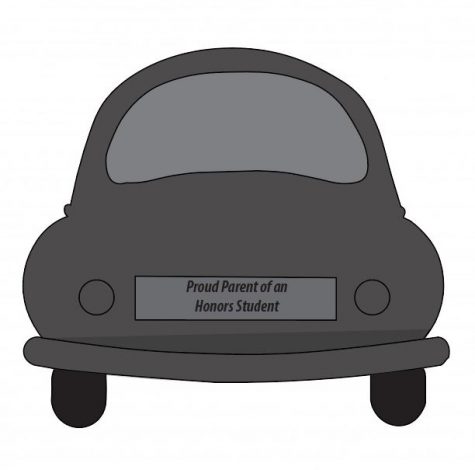Commentary: We all must learn how to fail
All students experience academic frustrations from time to time.
More stories from Kate Fernandez
For the majority of my childhood, school was the least of my worries.
I was considered a relatively talented student from a young age. I vividly remember being pulled out of class in elementary school to discuss my math homework. Not because I was in trouble, but because I was solving the problems in ways that weren’t taught yet, that I had instead learned on my own and applied to the problems.
I was quite proud indeed that I was a star student who had honed her skills and even had won prizes for her achievements. I expressed my intelligence as much as possible, most likely to the annoyance of my friends and family, but I was very proud.
I was even more happy with myself in middle school, when I became a part of the GATE program. GATE stood for Gifted And Talented Education, which was quite the ego boost for my 11-year-old self in sixth grade.
I was no genius of course, I just had a knack for academics, and middle school was just too easy, I made honor roll every semester and was proud of it (even if the bumper stickers I won were never displayed on my mom’s car). My learning truly was a breeze.
I was still a little scared, however, for high school. I feared that the tip-top grades I had maintained would plummet, but surely in the end I would pull through with ease, right?
Going into high school, academic failure was a relatively foreign concept. Sure, like any other freshman I had trudged through a challenging work load or two, or struggled over a difficult subject, what kid hadn’t? But I had not truly experienced failure, not at school anyway. At the end of the day, I always got the grade I wanted.
And at the end of freshman year, it seemed that that’s how things would remain. Classes were manageable, my grades were exactly where I wanted, and I was feeling good.
The problem with kids never failing in school is that when they do, they don’t know how to manage it. When kids have been constantly told that they are naturally talented, and never have to truly put effort into their academics, they never learn how to put the work in or how to deal with a difficult class.
I was no exception. The first class that I truly struggled in, was Honors Pre-Calculus. Granted, I wasn’t exactly failing it at the time, but I definitely didn’t keep the constant A I had always hoped for.
To be frank, I was very confused. I was confused at how I could let myself slip-up, how I could have what felt like an end-of-the-world failing grade. I had always prided myself on my grades, it was a part of who I was. This was a part of me I had never encountered, a part of me I was ashamed of.
As I had grown older, I had done my best to be outwardly humble with the people around me, but I allowed myself some personal pride in my academics.
In high school, that pride had started to crack. I wasn’t any different from those around me, I was average at this high school, and from time to time I was less than average.
At first I didn’t know how to deal with this feeling. I thought I was stupid, and everyone else in the class was so good while I didn’t even understand parts of the lessons. It wasn’t often that I had asked for help in the past, and to do so felt like admitting defeat.
While it surely seems dramatic, I was genuinely upset. But while it stung at first, over time I came to terms with it.
I wasn’t less of a student for struggling in a class, or for asking a teacher for more help than usual. And I’m no less of a student now, as I’ve encountered even bigger defeats. Failure is simply a part of life, a part that I’m still getting used to in school.
Just because I (or any other student who has gone through the same thing, for that matter) can no longer gamble my academic success and win, doesn’t mean I’m a poor student.
Everyone fails, even the kids who got honor roll bumper stickers in middle school.

Ah yes, the bumper stickers of achievement.




